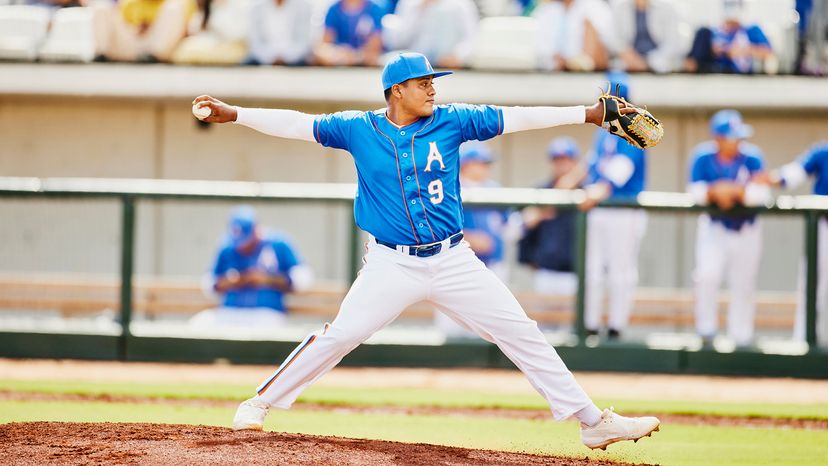While Aroldis Chapman holds the official record for the fastest pitch in MLB history, there are some other fast pitches that often get discussed when the conversation turns to superlatives. Unlike the official records, these pitches were thrown under circumstances that make their speed difficult to confirm.
No. 2: Bob Feller, Cleveland Indians, Griffith Stadium, 107.6 mph (173.2 km/h), 1946
This legendary, blazing-fast pitch wasn’t thrown during major league game play. Instead, before the game began, it was measured by throwing into a device called a Lumiline Chronograph, which had been set up to see how fast Feller was throwing.
His fastest pitch was clocked at 98.6 mph (158.7 kph). Because this was a one-off test, and the precise measurements aren’t readily available, it will always be a matter of speculation.
However, the high-end estimate for what that pitch would be today, using modern measurement standards, is a whopping 107.6 mph (173.2 kph).
No. 1: Nolan Ryan, California Angels, Anaheim Stadium, 108.1 mph (174 km/h), 1974
Nolan Ryan’s smoker was thrown in the ninth inning of a game in which the radar gun was being introduced as a new, groundbreaking technology.
While the measurement on the day was 100.8 mph (162.2 kph), adjusting to the new standard would make that a lighting-fast 108 mph (173.8 kph), easily securing the record of the fastest pitch ever recorded.
Even so, as with Bob Feller’s record, the accuracy of Ryan’s epic heater is hard to know for certain, and some experts continue to dispute this pitch. But Ryan remains one of the most celebrated pitchers of all time, and some believe he was capable of the astonishing feat.
